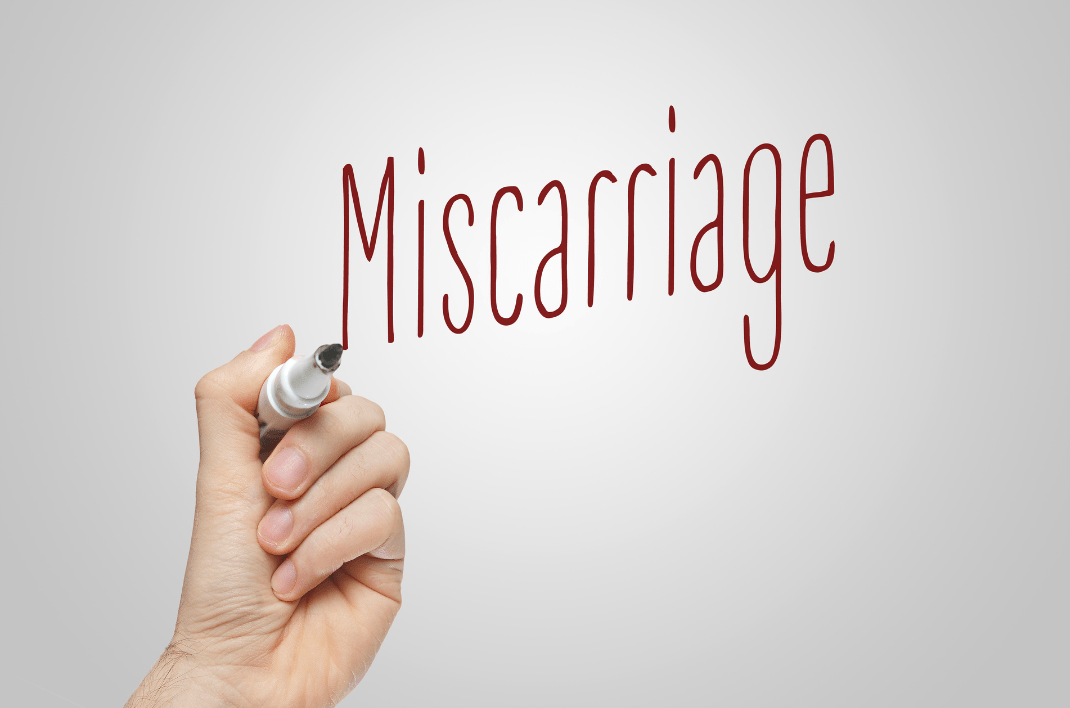Miscarriage symptoms and signs differ based on your pregnancy stage. A miscarriage is said to have occured when a pregnancy ends before the 20th week. Miscarriages occur in about 15%-25% of all recognised pregnancies. However, the actual figure is likely greater because many miscarriages happen early in pregnancy before you even realise you’re expecting.
Miscarriages can occur for a variety of medical reasons, many of which are beyond the control of the woman. Knowing the risk factors, symptoms, and causes, on the other hand, might help you better understand the occurrence and seek the necessary support or treatment.1
Causes of miscarriage:
A miscarriage could occur for a variety of reasons, though the exact cause is frequently unknown. Most of them are not the result of anything you have done. The majority of miscarriages are assumed to be caused by the baby’s abnormal chromosomes. Chromosomes are the genetic “building blocks” that direct a baby’s growth. A newborn won’t grow normally if it has too many or not enough chromosomes. A miscarriage in most cases, is a one-time occurrence, and most women go on to become pregnant successfully in the future.2
Symptoms and signs of miscarriage:
Some of the early miscarriage symptoms and signs are as follows:
- Spotting, bright red bleeding, or clots
- Tissue passing through the vaginal canal
- Vaginal fluid that is clear or pink in colour
- Cramping or pain in the abdomen
- Lightheadedness, dizziness, or faintness
- Breast soreness and nausea, which are common during pregnancy, start to fade
- Brown discharge which may look like coffee grounds. This discharge is basically old blood that has been sitting in the uterus for quite some time and is slowly leaking out.
If you notice any of these signs while pregnant, contact your doctor immediately. It is also possible to experience these symptoms without having a miscarriage. However, to be sure everything is okay, your doctor will want to run certain tests.3
Symptoms after a miscarriage:
You are likely to experience some kind of spotting and discomfort, which are considered as a common after miscarriage symptoms. In case you experience heavy bleeding, fever, chills, or any kind of pain, contact your doctor immediately as these can prove to be potential signs of an infection.4
Types of miscarriage:
There are different types of miscarriage including:
- Complete miscarriage – Your body has expelled all pregnancy tissues. Typically, this kind of miscarriage occurs before the 12th week of pregnancy.
- Incomplete miscarriage – Occurs when some of the placental or baby tissue leaves your body, but some of it still stays in your uterus.
- Missed miscarriage – The tissues remain in your uterus even if the embryo dies or was never developed.
- Recurrent miscarriage – During the first trimester, you lose three or more consecutive pregnancies. Only 1% of couples attempting to have a baby experience this kind of miscarriage.
- Threatened miscarriage – Your cervix hasn’t dilated, yet you’re bleeding and at risk of losing the pregnancy. In such a case, there shouldn’t be any issues as your pregnancy progresses.
- Inevitable miscarriage – Miscarriage which is unavoidable if there is blood, cramping, or cervical dilatation.
- Septic miscarriage – Occurs when an infection develops within your uterus.5 6
Miscarriage Treatment:
The treatment for a miscarriage varies depending on the type of miscarriage you’ve experienced. There is no need for treatment if there is no pregnancy tissue left in your body (complete miscarriage).
If you still have some tissue left in your body, you have a few alternatives for treatment:
- Expectant management, when you wait for the residual tissue to pass naturally out of your body.
- Medical management that entails administering medicines to assist you in passing the leftover tissue.
- Surgical management, which is the surgical removal of any residual tissue.
Since all of these treatment options carries a low risk of problems, you can consult with your doctor to determine which one is the best for you.7





